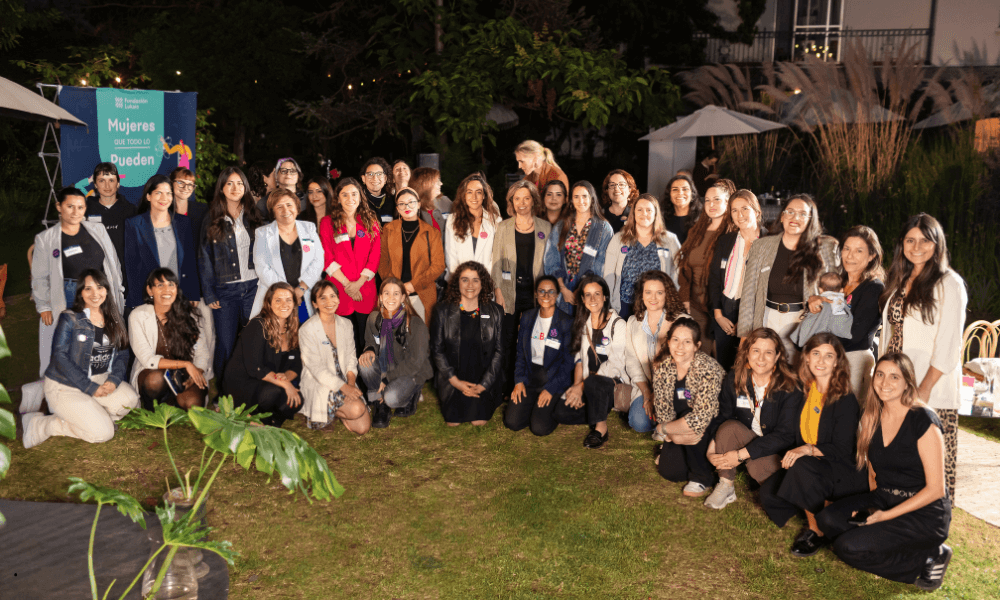More than 50 women gathered on Thursday for the launch of the second season of the Luksic Foundation podcast: Mujeres que todo lo pueden (Women Who Can Do Anything). The last episode of the season was recorded live, featuring Matilde Gaete, a physics engineering student at the Catholic University who is training to become the first Chilean astronaut to go into space.
Mujeres que todo lo pueden initiative, launched two years ago by the Luksic Foundation, seeks to encourage more women in Chile to study STEM (science, technology, engineering, and mathematics) careers, as these fields offer greater and better opportunities in terms of employability, higher salaries, and professional and personal development.
“Increasing women’s participation in STEM fields is a strategy that will result in higher productivity, a more dynamic economy, and will generate innovation. For them, for their life trajectories, and because Chile needs more women trained for the future. Stories like Matilde’s inspire and motivate us, which is why, as an organization, we are committed to this cause and to promoting these testimonies,” said Macarena Cea, general manager of the Luksic Foundation.
In order to promote female participation through raising awareness of the issue and highlighting women working in STEM fields, the Luksic Foundation announced that will provide financial support to Matilde Gaete so that she can complete her training with the aim of becoming the first Chilean woman to participate in a space mission. During 2026, the engineer will be dedicated to training to achieve her dream.
“If I manage to reach space and do science up there, I want to take the Chilean flag with me, with pride, with all the work I have put into this, with the perspective of a Latin American woman. By conducting scientific experiments in space, we will be able to answer questions that no one had ever thought to ask before, while also developing technologies for our life on Earth. Now is the time for Chile to be part of this new era in space exploration, enjoying its scientific, technological, and cultural development,” said Matilde Gaete.
Throughout this year, the future astronaut has been training at the International Institute of Astronautical Sciences in Connecticut, United States, for which she also received support from the Te Apoyamos Foundation created by Andrónico Luksic.
Carolina Ubilla, executive director of Fundación Te Apoyamos, emphasized that “as a foundation, we are deeply proud to support Matilde as she prepares to become the first Chilean woman to crew a space mission. Her career is an inspiration to thousands of girls and women, and that is something we seek to promote. Our commitment is to provide opportunities and support talent so that people can realize their potential and achieve their dreams”.
Podcast Mujeres que todo lo pueden
Technology design, the democratization of science, the video game industry, and gender-focused medicine shape the second season of the podcast. The series, available on Spotify, includes eleven episodes featuring women who are making a difference in these areas, such as Komal Dadlani, Viviana Cavieres, Katherine Vega, Tati Flores, and Rocío Mieres.
“Today, STEM careers can offer up to 50% higher pay, but they remain highly male-dominated. Incorporating more women not only opens up opportunities that improve their quality of life, but also enriches the solutions and advances that impact the daily lives of the population: from the design of seat belts to the development of medicines that also incorporate the female reality. That is why we need public policies and projects that promote their participation and retention in these industries,” said Komal Dadlani, biochemist and co-founder of Lab4U, where they convert cell phone and tablet sensors into laboratory tools to democratize science education.
This content is part of the campaign of the same name with which the Luksic Foundation, together with more than 20 organizations, educational institutions, and companies, seeks to encourage more women in Chile to study STEM careers, as these offer broad fields of work, greater and better opportunities in terms of employability, and are also linked to more competitive salaries and the development of fundamental skills for life in the 21st century.

